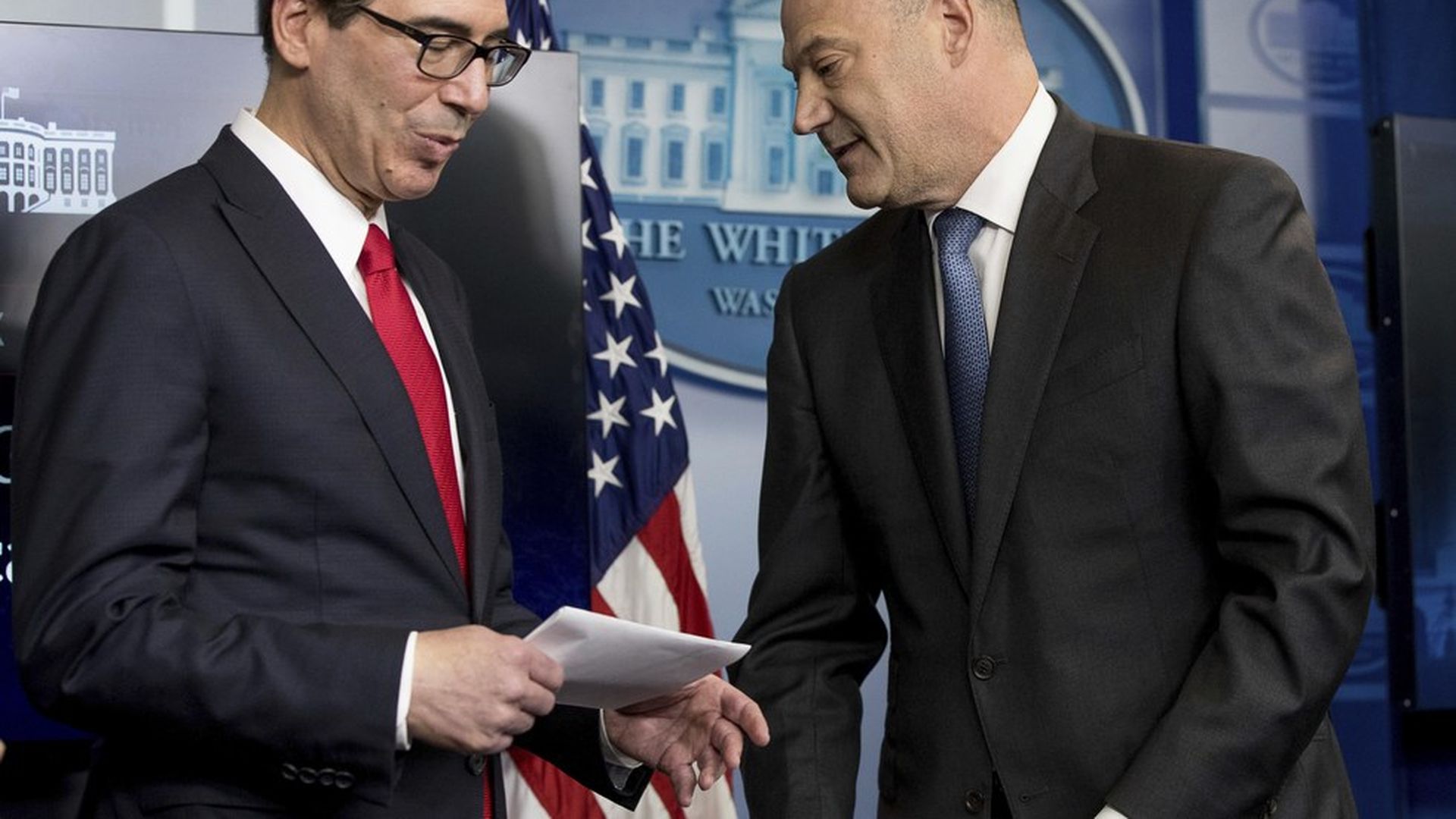Jun 25, 2017 - Politics & Policy
Behind the scenes with Trump's point men on tax reform
Add Axios as your preferred source to
see more of our stories on Google.

Andrew Harnik / AP
Here's what Trump's two point men on tax reform. Gary Cohn and Steven Mnuchin, have been telling business representatives and special interests in their closed-door meetings, per sources in the rooms:
Timing: Goal is to have an agreed upon House-Senate-White House tax reform proposal by early September for when members return from summer recess. They would then use September, October, November to push through tax reform.
Key question: They're posing the same question to special interest groups: "If we can get the corporate rate into the teens, what are you willing to give up?"
- Translation: They're trying to use the lure of a 15% corporate tax rate as the way to ween special interests off of their special deductions within the tax code.
- Revenue neutrality: Both Cohn and Mnuchin still say they're committed to tax reform being revenue neutral — i.e. not adding to deficits. That's important because lots of conservatives support tax cuts that aren't paid for. "At one point with Cohn, he kind of said, 'I wish we didn't have to do revenue neutrality,'" said a source who's spoken to him recently. "I don't think they've given up on it though. I think they're committed."
- Carve outs: Cohn and Mnuchin have realized that the only way they're going to get a tax bill through Congress is by making special "carve out" exceptions — to allow certain politically-powerful industries to continue to deduct their interest. Keep an eye on real-estate, infrastructure, and small businesses. The downside: once you start carving all these industries out, your trillion dollar pay-for suddenly becomes much smaller.
- Deductions: The only deductions they're committed to keeping are for charitable giving, retirement and mortgage deductions. They're determined to remove state and local income tax deductions. They've also got a line to sell this controversial decision to blue state Republicans (whose constituents make the most of these deductions.) The sell: we're going to increase the standard deduction for individuals' income tax, so even if they lose their state and local, the vast majority of Americans won't have higher taxes.
